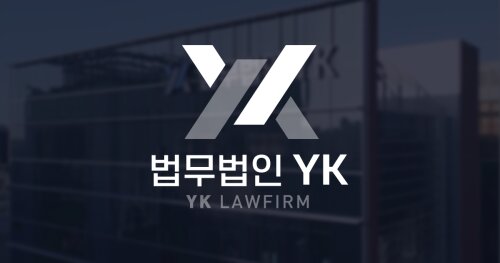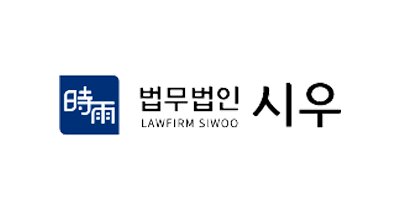Best Corporate & Commercial Lawyers in South Korea
Share your needs with us, get contacted by law firms.
Free. Takes 2 min.
Or refine your search by selecting a city:
List of the best lawyers in South Korea
About Corporate & Commercial Law in South Korea
Corporate and commercial law in South Korea governs the legal framework within which businesses operate. This area of law covers the establishment, management, operation, and dissolution of companies, as well as the regulation of commercial transactions. South Korea has a dynamic business environment and features a unique mix of internationalized practices and local regulatory requirements. Corporate law is primarily guided by the Korean Commercial Code, while commercial law encompasses contracts, antitrust, mergers and acquisitions, financing, and more. South Korea's legal landscape continues to evolve to accommodate domestic growth and increasing foreign investment.
Why You May Need a Lawyer
Seeking the advice of a corporate and commercial lawyer in South Korea can be essential in various situations. Common reasons include:
- Forming a company and choosing the most suitable business structure
- Negotiating and drafting contracts with local or foreign partners
- Ensuring compliance with government regulations and reporting requirements
- Guiding through mergers, acquisitions, or joint ventures
- Handling disputes between shareholders, partners, or with third parties
- Addressing intellectual property issues in a commercial context
- Advising on employment matters and labor laws relevant to business operations
- Navigating regulatory filings, licenses, and permits
Local Laws Overview
South Korea's corporate and commercial laws are known for their comprehensiveness and strict regulatory environment. Here are some of the key aspects:
- Company Types: The Korean Commercial Code recognizes several types of business entities, such as stock companies, limited liability companies, and partnerships. Each has distinct formation, operation, and dissolution requirements.
- Foreign Investment: The Foreign Investment Promotion Act sets out rules for foreign investors, including restrictions in certain sectors and required registrations with relevant authorities.
- Mergers & Acquisitions: M&A transactions are governed by the Commercial Code and regulated by bodies like the Fair Trade Commission, especially concerning antitrust considerations.
- Contracts: Contract law in South Korea is well-developed and respects the principle of freedom of contract, while also incorporating mandatory provisions in some types of agreements for public policy reasons.
- Compliance & Reporting: Companies must comply with financial disclosure, audit, and tax reporting rules. Noncompliance can result in serious penalties.
- Labor Law: Employment relationships are closely regulated, with protective rules for workers on contracts, dismissal, wages, and working conditions.
- Intellectual Property: Businesses must protect and enforce IP rights under local frameworks, overseen by the Korean Intellectual Property Office.
Frequently Asked Questions
Can a foreigner set up a business in South Korea?
Yes, foreigners can establish businesses in South Korea. The Foreign Investment Promotion Act provides guidelines for company formation, and certain sectors may have restrictions or require special permissions.
What types of companies can be incorporated in South Korea?
The most common business forms include stock companies (Chusik Hoesa), limited liability companies (Yuhan Chaekim Hoesa), partnerships, and joint ventures. The stock company structure is most popular for larger-scale operations.
What is the minimum capital requirement for a company?
There are generally no minimum capital requirements, except for certain regulated industries. However, stock companies require at least one shareholder and director.
Do I need a local director to establish a company?
No, Korean law does not mandate a local director for all types of companies, but practical requirements may vary based on the industry and type of entity.
Are there any restrictions on foreign ownership?
For most sectors, 100 percent foreign ownership is allowed. However, certain industries such as media, telecommunications, and defense have ownership restrictions or special licensing requirements.
How are mergers and acquisitions regulated in South Korea?
M&A transactions are governed by the Korean Commercial Code, the Monopoly Regulation and Fair Trade Act, and overseen by the Korea Fair Trade Commission. Approval may be required if the transaction affects market competition.
What are the key compliance obligations for a company?
Companies must adhere to statutory filings, financial disclosures, tax submissions, and employment law standards. Annual audits are required for certain entities.
How enforceable are commercial contracts in South Korea?
Commercial contracts are highly enforceable, provided they adhere to Korean law and public policy. Courts generally respect the parties' agreement, barring illegal clauses.
What laws govern employment and labor relations?
The Labor Standards Act and related statutes regulate employment contracts, working hours, employee protections, social insurance, and dispute resolution.
What should I do if I face a business dispute?
Business disputes can be resolved through negotiation, mediation, arbitration, or litigation. Legal advice is recommended to assess the best course of action based on your situation.
Additional Resources
If you need further information or official guidance, consider the following resources:
- Ministry of Justice - Governs company laws and immigration regulations
- Korea Fair Trade Commission - Oversees antitrust and fair trade matters
- Small and Medium Business Administration - Offers support and guidance for SMEs
- Korean Intellectual Property Office - Handles IP registration and disputes
- Ministry of Employment and Labor - Provides information on labor regulations
- Invest Korea - Government agency supporting foreign investors
- Local chambers of commerce and industry associations - Business information and networking
Next Steps
If you require legal assistance in corporate and commercial matters in South Korea, consider the following steps:
- Identify your legal issue clearly and gather relevant documents
- Consult with a qualified local corporate lawyer experienced in your specific area
- Prepare questions to discuss your options, timelines, risks, and expected outcomes
- Follow your legal advisor's recommendations for regulatory filings, contract drafting, negotiations, or dispute resolution
- Stay informed about regulatory changes that could affect your business
Lawzana helps you find the best lawyers and law firms in South Korea through a curated and pre-screened list of qualified legal professionals. Our platform offers rankings and detailed profiles of attorneys and law firms, allowing you to compare based on practice areas, including Corporate & Commercial, experience, and client feedback.
Each profile includes a description of the firm's areas of practice, client reviews, team members and partners, year of establishment, spoken languages, office locations, contact information, social media presence, and any published articles or resources. Most firms on our platform speak English and are experienced in both local and international legal matters.
Get a quote from top-rated law firms in South Korea — quickly, securely, and without unnecessary hassle.
Disclaimer:
The information provided on this page is for general informational purposes only and does not constitute legal advice. While we strive to ensure the accuracy and relevance of the content, legal information may change over time, and interpretations of the law can vary. You should always consult with a qualified legal professional for advice specific to your situation.
We disclaim all liability for actions taken or not taken based on the content of this page. If you believe any information is incorrect or outdated, please contact us, and we will review and update it where appropriate.
Browse corporate & commercial law firms by service in South Korea
South Korea Attorneys in related practice areas.
Browse corporate & commercial law firms by city in South Korea
Refine your search by selecting a city.

















